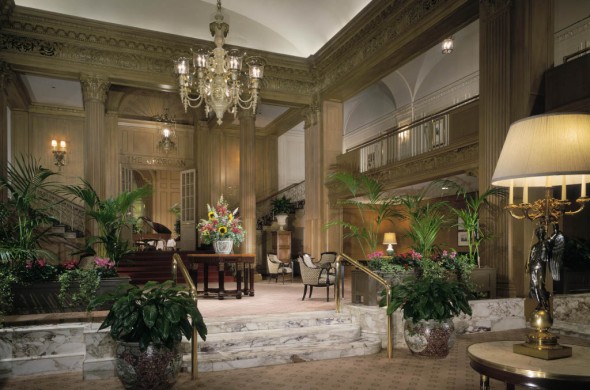The hospitality and leisure industry significantly contributes to the economies of the MENA region, and some of the key driving forces for the industry are Travel and tourism. As per the World Travel and Tourism Council, in the Middle East, the tourism and travel industry represents nearly 8.7% of the region’s GDP, while in North Africa, it represents 11.2%. In the GCC region, The United Arab Emirates (UAE) and Saudi Arabia are leading the leisure market, accounting for 74% of total leisure projects.
The Covid-19 pandemic situation has brought the global aviation, tourism, and leisure industry to a standstill, and the MENA region is no exception to these impacts. According to the World Travel and Tourism Council (WTTC), the international visitor impact on the MENA’s leisure tourism industry is estimated at more than USD 100 billion, of which nearly 79%is in the leisure tourism industry that includes theme parks, amusement parks, and family entertainment centers. The leisure entertainment and attractions industry that significantly contributes to the economies of the MENA region is losing on average around USD 6.71 billion per month in business due to the impact of Covid-19.
The Middle East is one of the largest markets for leisure, and prior to the COVID-19pandemic, many theme parks and entertainment centers were being planned, however, due to the pandemic, countries like Saudi Arabia and UAE have put on hold, rescheduled, or canceled many of these projects, such as Expo 2020 which was rescheduled to 2021. This has put large pressure on the hospitality & leisure industry as most bookings resulted in cancellations owing to the uncertainty in travel restrictions.
In Saudi Arabia, the focus now is attracting global investments and introducing new investment opportunities through several projects, such as Qiddiya, Red Sea Development, NEOM, among others. In September 2019, Saudi Arabia announced its new visa procedures in which visas will be provided on arrival to visitors from 49 countries which is expected to improve the influx of tourists post COVID-19.
NEOM is a USD 500 billion smart tourism megacity project with an autonomous judicial system located in Saudi Arabia along the Red Sea coast
Prior to Covid-19, and during 2018-2019, hotels average monthly occupancy rates for the Middle East and Africa (MEA) region were ranging between 50% and 75%, however, once the lockdown started, rates dropped to a range of 20% to 35%, which reflects the large impact that the pandemic had on the sector. Many hotels were closed because they ran out of cash, whereas other hotels tried to survive and compensate for their cash flow tightening by becoming quarantine centers.
Hotel brands need to revisit their existing service standard operating procedures (SOPs) and business models, like restaurants in hotels may commence promoting contactless delivery for in-room-dining and designing menus in single portions rather than in a sharing size. For example, a regional Hotel chain rolled out the “Sanitized and Ready” initiative across all of its properties in the UAE, Saudi Arabia, and Egypt with a wide range of intensified cleaning measures and sanitization procedures being implemented throughout all public areas, as well as in each individual guestroom. Cleanliness and hygiene will be major selling points in the future. While guests have always trusted that hotels will be clean, now they will want more tangible proof. For example, they will want to know that a hotel is meeting new safety protocols set in place by government or industry bodies.
In that regard, Dubai has been awarded a global safety and hygiene stamp by the World Travel & Tourism Council to show the UAE’s commitment to reopening its tourism sector as it recovers from the Covid-19 outbreak. Many hotel brands who invested in the automation of processes are seeing a rise in occupancy levels in the post lockdown phase with increasing demand for staycations and long-terms stays. Revenue per available room (RevPAR) increased to AED 72.65 in Dubai during June 2020, slightly higher than in May 2020. Hotels also began offering co-working spaces in response to evolving customer needs, owing to strong demand for communal workspaces for the new generation of consumers to socialize and work.
World Travel & Tourism Council (WTTC) map showing stamped countries for safe travels. Credit WTTC
Some hotel brands have moved a step forward and are offering free Covid-19 PCR tests for international visitors to their places in Dubai. Dubai’s popular hotel Atlantis The Palm, has announced that all international guests choosing to stay five or more nights in the hotel will be able to undergo free Covid-19 PCR tests in-house. Reportedly, the hotel has partnered with leading hospitals in the Emirates, to ensure guests get their tests done for free in the hotel so that their vacation is not disturbed in any way and thus improving customer experience.
As things are starting to get back to normal after lifting the lockdown and limiting the COVID-19 spread, major tourist attractions such as hotels and restaurants are opening back for visitors and tourists while adopting new technologies and approaches such as digitalization and contactless delivery to enhance the customer experience.
It is expected that the MENA hospitality and leisure industry will require at least a year’s time to reach the pre-Covid-19 business levels. Despite the relaxations of lockdown and enhancing customer experience ensuring the safety and security of the premises, the occupancy rates will definitely need some buffer time to get back to normal and strong growth in the sector is likely to be witnessed in the Middle Eastern countries, such as the UAE, Saudi Arabia, and Qatar initially, owing to various events being planned in GCC countries, such as EXPO 2021 and Qatar World Cup 2022, which are likely to give a boost to the industry.



